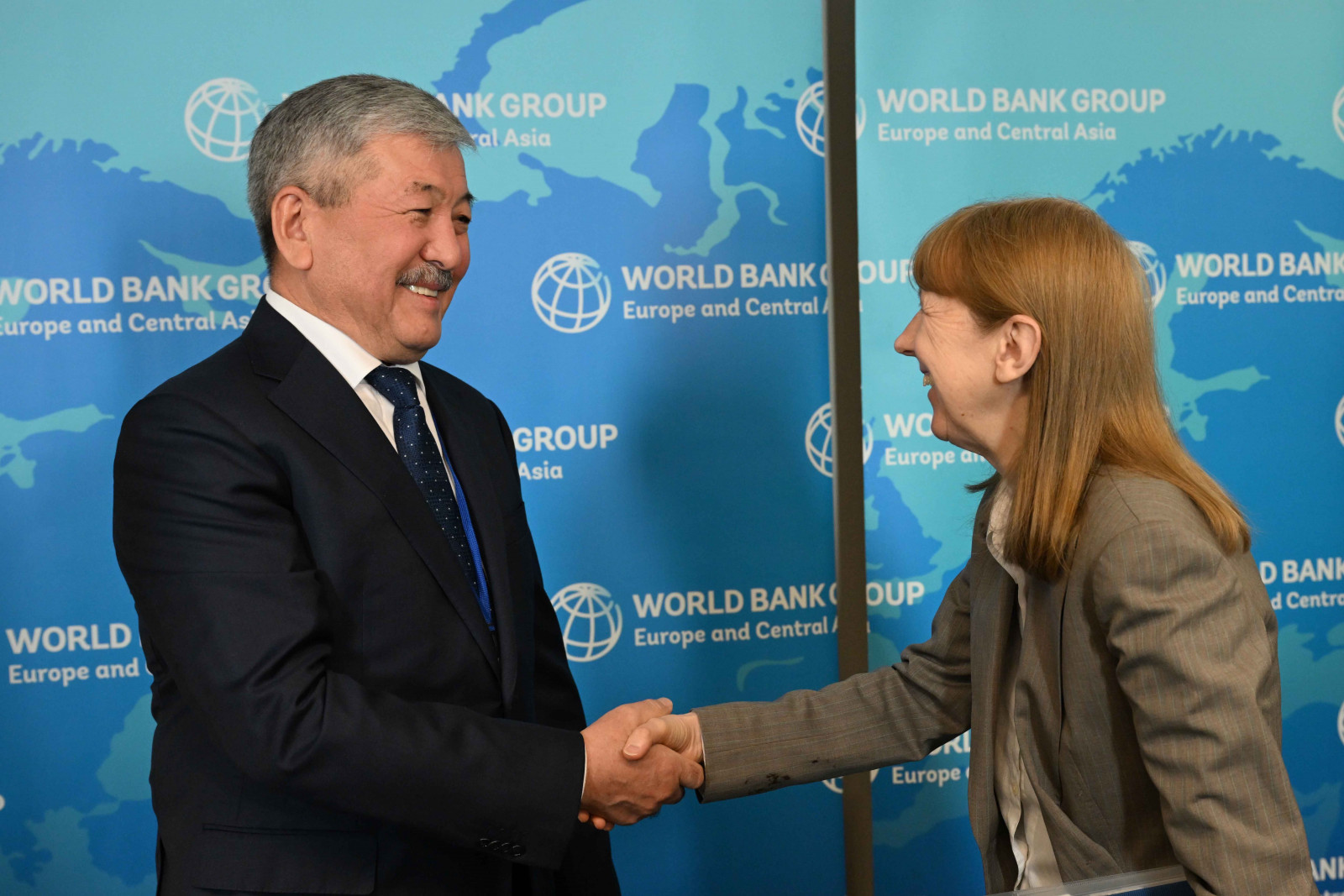BISHKEK, Kyrgyzstan, April 22. The construction of the Kambarata Hydropower Plant-1 (HPP-1) in Kyrgyzstan is among the World Bank's priority projects, said Antonella Bassani, the Vice President of the World Bank for Europe and Central Asia, Trend reports via the Cabinet of Ministers of Kyrgyzstan.
Bassani made the statement during a meeting with Adylbek Kasymaliev, Chairman of the Cabinet of Ministers of Kyrgyzstan, held in Washington, D.C., on the sidelines of the Spring Meetings of the International Monetary Fund and the World Bank Group.
She praised the long-standing partnership with Kyrgyzstan and described the Kambarata HPP-1 initiative as a “transformative and outstanding project” for the entire region. Bassani also expressed admiration for Kyrgyzstan’s economic progress, noting the country’s rapid reform implementation and steady advancement of the hydropower project.
In turn, Kasymaliev emphasized the strategic importance of Kambarata HPP-1 for the energy security of Kyrgyzstan and the wider region. He noted that the plant is expected to become one of the largest hydropower facilities in Central Asia, enabling Kyrgyzstan to export electricity to neighboring countries and significantly reduce carbon emissions.
“This project will make a substantial contribution to the country’s commitments under the Paris Agreement and will support the implementation of the global green agenda,” Kasymaliev said.
Last year, the World Bank approved an additional $13.6 million in funding for the ongoing technical assistance related to the Kambarata-1 project. This is in addition to the $5 million previously allocated to support the plant’s development. The funding is being used to update the technical studies conducted in 2014, in order to reaffirm the project’s feasibility and economic viability.
Kyrgyz Energy Minister Taalaibek Ibraev had previously stated that Kambarata-1, located on the Naryn River in the Toktogul district, is expected to take 6.5 years to complete. With an installed capacity of 1,860 MW, the plant is projected to generate 5.6 billion kWh of electricity annually. The total cost of the project is estimated at $3.5 billion, with construction scheduled to begin by the end of this year, subject to financing.







